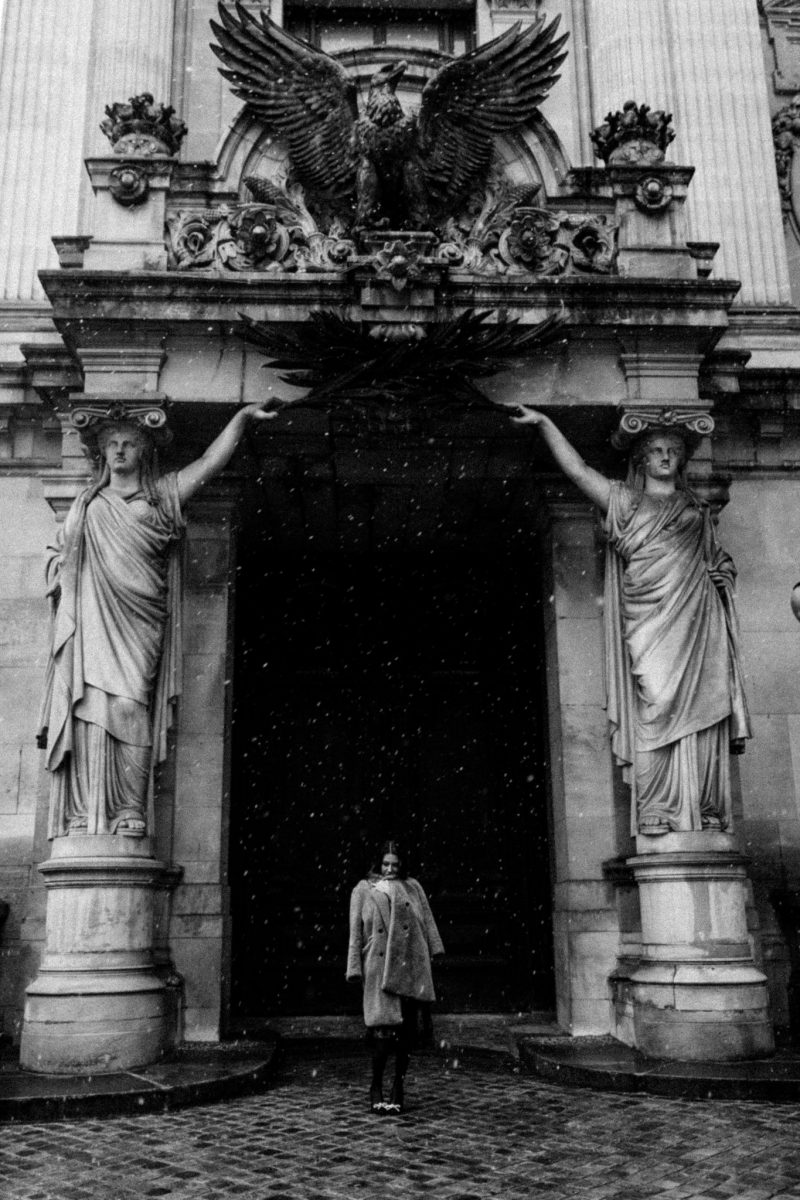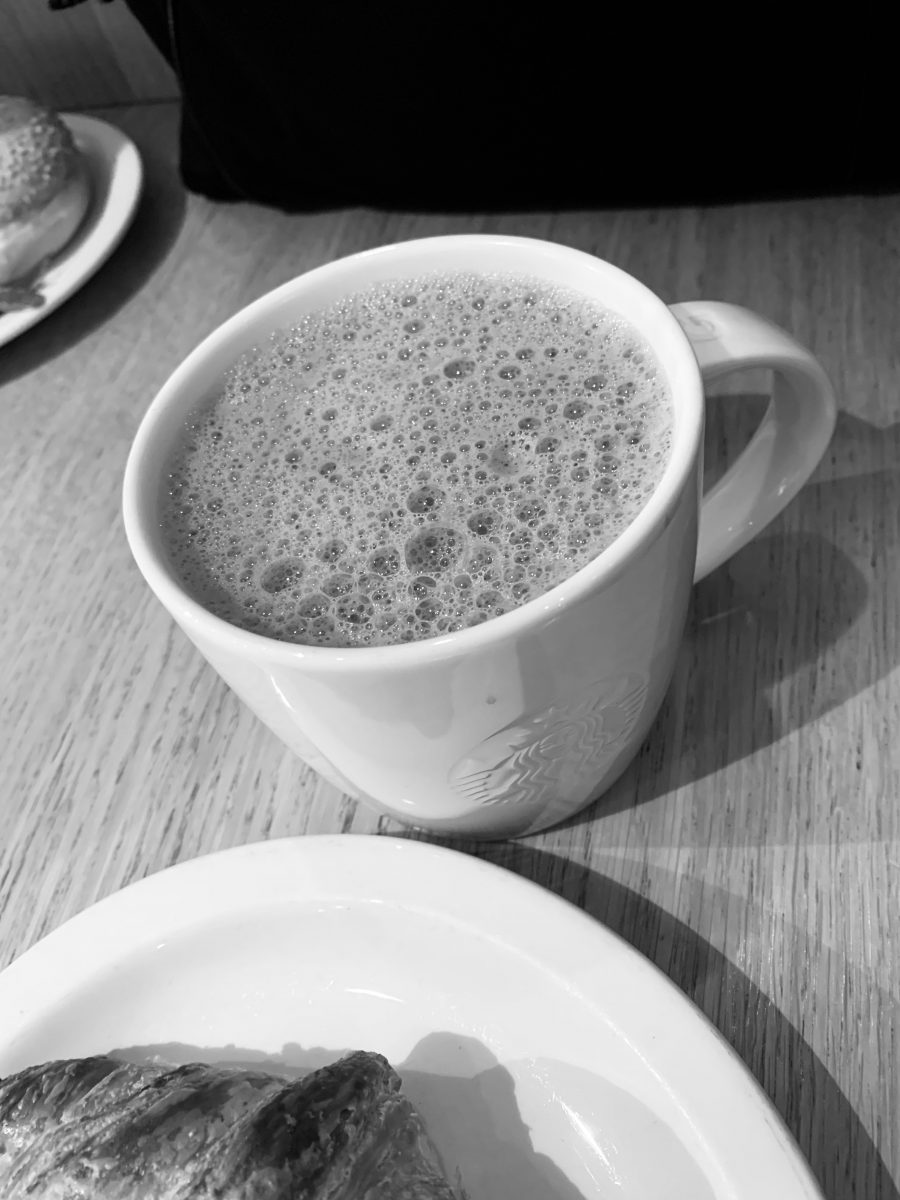
Image: © Akshay Paatil | Unsplash
Author: Sibylle Duvernay
I chose my apartment for its location. Close to the city center, but far from the busiest streets. Several metro stops from the most festive district, but not too far from my workplace and the campus either. I had a 15-minute subway ride every day, or a 20-minute bike ride. Really, the location was ideal. My neighbors were all very discreet, which had something to do with the fact that I was the only one in my building under 65.
In the last 6 months, everything has changed. Unbelievable madness. Aside from the Eiffel Tower, I think my street is now the most visited place in Paris. Even the Mona Lisa is bored, alone in her huge museum. Last November, the little photographer who ran the store in the building opposite plastered all his windows with signs reading “Liquidation totale avant fermeture définitive”. So far, so good, nothing unusual. I even stopped by to buy some film for my camera, and, like a good neighbor and customer, had him develop my last shots. In January, he closed up shop for good and went off to his native Côte d’Azur for a well-deserved retirement. The store then became a travel agency but had to close its doors a few months later when it all began. Next to the late photographic store was a photo booth, which opened directly onto the street. As I had already spoken to the owner of the store, I knew he didn’t own the photo booth, and no one had used it for years; out of solidarity, everyone on the street went straight to him to have their identity photos taken. After his departure, the photo booth was back in service. At first, I hadn’t heard anything about it, and it was only one evening when I bumped into one of my neighbors that he said to me:
– You should look at the news, it’s about our street.
Surprised, I turned on my TV as soon as I got home. I then understood why so many people had been blocking my way home for the past few days.
“The photo booth that replaced Cupid”. That was the evening’s headline. Intrigued, I turned up the sound. Dozens of people were claiming that when they took their photo in the famous photo booth on my street, it wasn’t their photo that was printed, but that of their soulmate. On the screen, we could see married couples proud of “not having made a mistake”, and young couples breaking up in tears. And so, the show went on. Day after day, thousands of people flocked to the streets for the chance to test their love. For months, I witnessed every possible scenario. Families were torn apart under my windows, marriage proposals were made on first dates, couples married for 30 years went their separate ways. Nothing could predict what the photo booth would print: a husband, a mistress, a lost love, a “friend”, a one-night stand, a lover, an ex. Anything worked. The authorities tried to regulate access to the photo booth, but it was too late; nothing could stop people from making the journey here for a simple photo.
Even the media were going crazy; on TV shows, everyone had their own theory. But who was running this photo booth? How could it never be wrong? Should we leave it and exploit this new source of income? Should we move it and risk damaging it?
Personally, I didn’t believe it. Not that I was afraid of losing the love of my life – she hadn’t shown up yet. A confirmed bachelor since my last separation, I let life do its work. I would find love, without going through this scam. Nonetheless, I had a lot of admiration for the man who had launched this concept, as much for the simplicity and effectiveness of his idea as much as for the ingenuity he had to show to be able to access all those photos and never come up with the same one twice. It just went to show, you should never leave information lying around on the Internet. Really, how could anyone believe such nonsense?
My birthday arrived, the 25th , and I went out with some friends. We drank a beer, then another, and another, until nothing intelligible could come out of our mouths. How happy we were ! How drunk we were when they headed back to my flat with me for the after party – to be sure I find my way back home. Suddenly one of my friends came out with an amazing idea:
– Come on mate ! There is no one, go try this magic photo booth !
– Twenty-five, you’ve gotta find your “wife” !
The old leather chair. The bright, violent flash in my eyes. A picture. For an instant, none of us were laughing anymore. We all looked at the picture, impatient, shaking. A face appeared. An angel, the most… my brain was not able to find the right word to describe her, not after all this beer.
I did not remember the end of the night, but when I woke up in my bed, her picture was on the pillow next to me. I tried to figure out what had happened. The bar, the streets, the photo booth. Her face. Her dark eyes, her strawberry lips, her sun kissed skin. I had never seen this person before, I was sure of that. She was not from my class, not from my running club, nor was she part of my internship at the bank last year. A face like this one, I would have remembered it. I needed to find her, more than anything.
For weeks, I looked for her. On the campus, at my job, while running through the Parisian streets. Nothing. Not even a slight resemblance. I searched on the internet, on social media. I asked my friends. She was nowhere to be found, but I couldn’t lose hope. Since her picture has been printed, she never left my mind. In my dreams, when I read, when I cooked, when I showered. A hole I never knew has grown in me, and she was the only one able to fix it. I felt incomplete, truncated, empty. The days had no flavor, the laughter sounded hollow. I needed her.
Noticing the changes in my attitude, my friends decided to organize a dinner at my apartment. I didn’t enjoy it. I looked at them and imagined the same night with her, laughing with my friends. Them, impressed by her, almost jealous of our happiness. Her hands on my shoulders when she got up to go to the kitchen, a discreet kiss on her neck while preparing the dessert, my hands on her hips…
– Don’t you ?
I stopped dreaming.
– You’re not listening, are you ?
– He said you should try to look at the police register, Adrien could help you !
– That’s not permitted, argued Adrien, his nose was red from wine.
Not enough to make him forget his duty as a policeman.
– Come on mate, help him or he’ll never have fun again !
I knew I shouldn’t ask for it. I knew I should have pulled myself together, but the hope of finally finding her was stronger. I insisted, I opened one more bottle.
It was past 2 am when we entered the police station. Adrien took the picture, scanned and transferred it on his computer. We waited in the heavy silence.
“One match found”
I realized I wasn’t breathing. He clicked on the folder. A child’s picture appeared, next to robot portraits of the child, always older. The last one, the most recent, looked horribly like the photo from the photo booth.
– Gabrielle Blanche Virnot, disappeared on April 22, 2005. Blonde, brown eyes, aged 6. Father suspected; no body found. Note: portrait regularly updated according to procedure, read Adrien.




